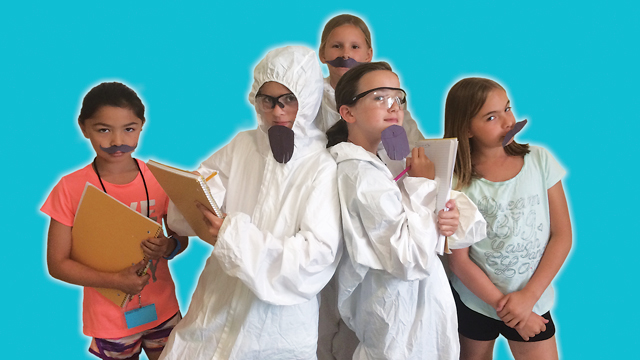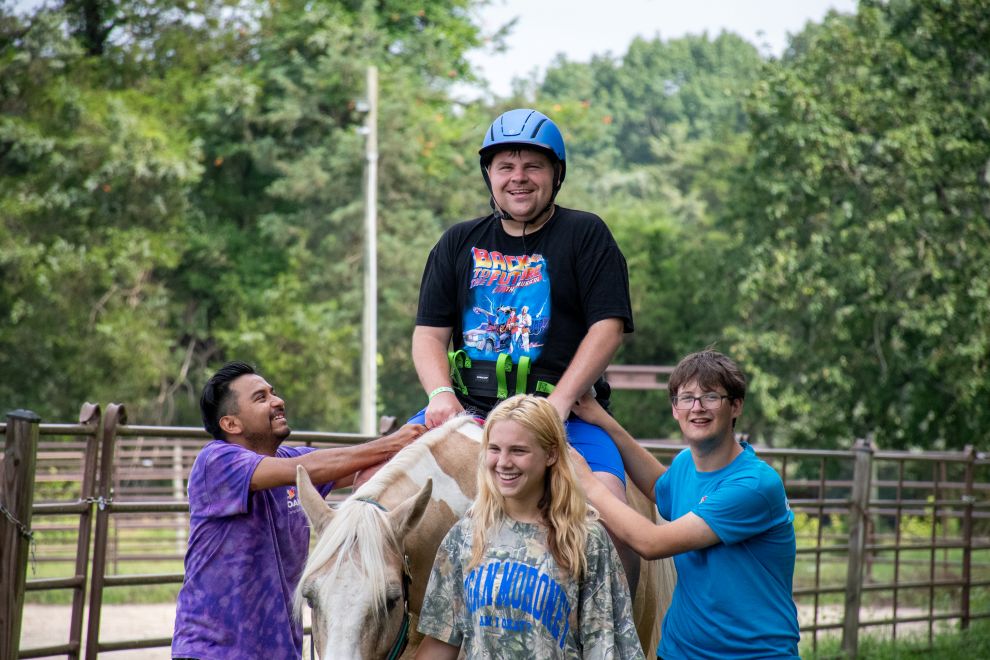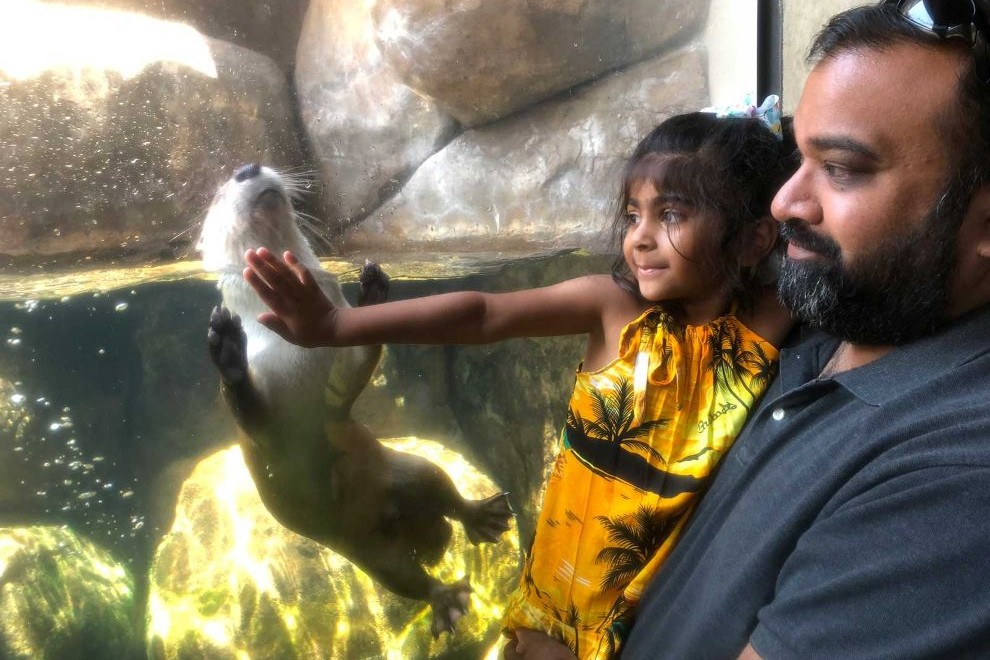 Visit the newly updated RFM Summer Camp Finder with close to 300 camps for all ages and interests. It’s easier than ever to search by activity, age, and location and find summer camps and activities for your kids
Visit the newly updated RFM Summer Camp Finder with close to 300 camps for all ages and interests. It’s easier than ever to search by activity, age, and location and find summer camps and activities for your kids
It’s early spring, but Emily Shane already has summer camps on her radar. She wants to make sure her 6-year-old daughter, Violet, and her 8-year-old son, Max, have a full lineup of camps during their summer break from school.
Shane’s preparation for summer break is labor intensive. She starts by plugging summer camps into an Excel spreadsheet. She determines where each child will be during the week and collects information about each camp. “It’s a lot of coordination,” she says. “There could be a different camp every week, and they may start at different times.” After the spreadsheet is complete and Shane reviews it with her husband, Whit, she presents it to Violet and Max to gauge their level of excitement for each camp. If she senses some hesitation, adjustments can be made. The spreadsheet helps her map out the various locations of the camps and their times of operation. To make it even more complicated, her son and daughter typically do not attend the same camps. “Having that Excel spreadsheet helps,” she says. “I put everything into our family calendar so we have a general sense of where we are supposed to be every Monday.”
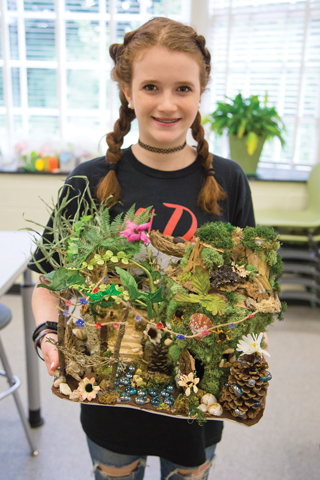
Typically, each camp has a different focus. She tries to match her children’s interests to the camps. “Our son loves reading so he has a reading camp,” Shane says. “My daughter may go to a cooking camp. Trying to find the best program for your child’s interest is challenging.”
In previous years, Shane’s son has attended soccer, climbing, acting, reading, and outdoor camps where campers meet at different parts of the river to take part in activities such as river rock jumping and animal tracking. Max also has attended Boy Scout camp.
Violet has been to reading, cooking, pool, yoga, art, and nature camps, as well as Passages Adventure Camp. “The reality for my daughter is that she has to have another friend there to be happy. I could send her to the best camp, but if she doesn’t have a friend, she’s not happy,” Shane says.
Shane typically schedules camp every other week during summer break. Her ultimate goal is to expose her children to new experiences. “What summer camp allows us to do is a lot of different activities in a small amount of time,” she says. “It gives them an opportunity to test something out they wouldn’t have wanted to test out for the entire semester. It’s also an opportunity to get good at the things they like.”
At the end of each week, she has her children rate the camps to get a better idea of what they will participate in next summer. “I like to try to have a mix of fun things and academic things,” she says, noting that camps normally range from around $100 a week to $400 per week. “There can be inexpensive options. It just depends on your interests.”
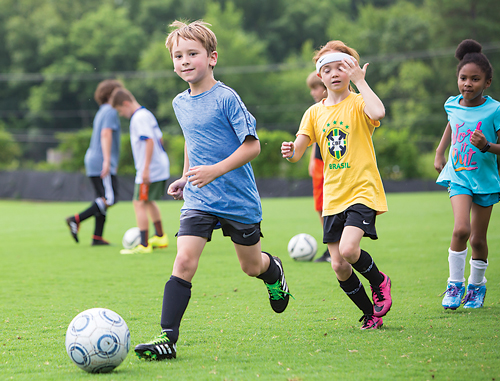
A proponent of summer camps, Shane believes they lend structure to her children’s lives. “The kids bicker so much when they are at home and unengaged,” she says. “Camps give them a reason to wake up at the time they need to wake up. Camp is also a time to be with other people. It’s sort of like the anchor for the day. Summer can be so monotonous when it’s not structured, and we like structure.”
Learning through Camps
Summer camps today allow kids to learn about a variety of subjects, everything from cooking to operating drones. Activities at each camp vary according to the camp’s focus. Many, however, offer some type of physical activity that helps them get outdoors and exercise. A 2017 study, “Children’s Moderate to Vigorous Physical Activity Attending Summer Day Camps,” published in the American Journal of Preventative Medicine, notes that outside of regular school, summer day camps are the largest setting where kids can be physically active. It finds that more than seventy percent of kids (ages five through twelve) at day camps are getting more than the recommended amount of sixty minutes per day of vigorous physical activity.
Children participating in camps at The Steward School have several innovation, sports and activity camp options, everything from volleyball and tennis to drones or pottery.“We love how our flexible model allows campers to try several different camps throughout the summer. This summer we have nearly 90 camps,”” says Chuck Robinson, the school’s Coordinator of Auxiliary Programs. The school offers camps in four areas of interest – academics, arts, innovation, and sports.
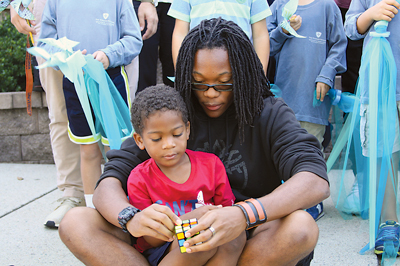
The school’s Afternoon Adventure Camp takes campers off campus to explore the city. Campers have gone to the Science Museum of Virginia, a Richmond Flying Squirrels game, Laser Tag, and other popular locations. “Afternoon Adventures is our most popular offering. The kids love getting to do something fun off campus each day,” Robinson says.
Steward offers its tried-and-true offerings, but adds new camps every year. “With the ability to sign up for either a half or full-day option, it allows the campers to experience something new each week if they choose” Robinson says. “Try robotics this week and cooking next week. Join the summer book club camp or the basketball camp or economics camp. It’s great for the campers to learn something new, while still spending time with their friends and enjoying camp.”
It’s important to have camp instructors who make learning fun, he adds. “If the instructor is excited and energized, it makes all the difference. They are excited about being here with the kids and help to kids connect to the individual offering theme. A perfect example is our community service camp which has teens engaging in something as meaningful as active volunteerism. The instructors are passionate and the kids in the camp mirror that passion. The community service camp is routinely rated as one of our most rewarding camps. The core strength of our summer experience is how our instructors connect with each individual kid.”
The number of kids in a camp at Steward can range from about fifteen to around thirty and roughly half the campers do not attend The Steward School. “It depends on the camp and the activity. We are intentionally small so that we can truly engage with each camper” Robinson says. “Our sports camps are pretty large. We limit our innovation camps – like drones – to about fifteen campers. If a kid is trying something new like Photography or Karate, we want them to have a perfect experience and feel it is important to limit our size to do so.”
For families who are curious about attending The Steward School, “coming to camp is a good way to familiarize yourself with the school and see if it’s the right school for your child,” she adds.
There are hundreds of camp offerings and combinations at St. Catherine’s School, including half-day and full-day, one-week and three-week sessions, academics, STEM, arts, athletics, and leadership. “You name it, we’ve got it,” says Lewis James, director of Brilliant Summer at the school. Even though St. Catherine’s is an all-girls college prep school during the school year, the school opens up its campus to girls and boys ages three to grade twelve for camps.
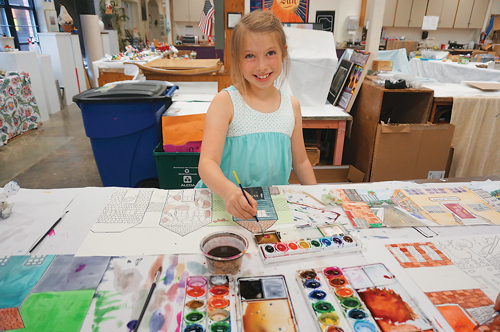
One of the most popular camp options is Design Your Day Camp. It allows kids to choose up to six special topics to create their own camp experiences. Topics range from playing the ukulele to the Truth About Dragons “There’s even a Design Your Day wish list that parents and kids can review together to make their personalized selections,” James says.
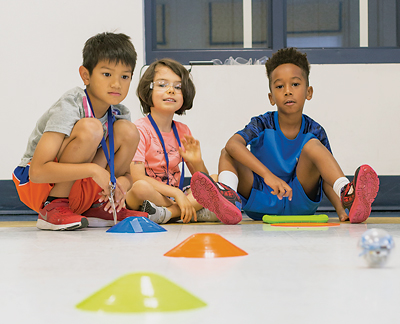
The school additionally offers a variety of special interest camps where kids can dive deeper into specific passions or learn something completely new. Brilliant Summer Entrepreneurship is one of the newest offerings. “Kids will have a hands-on opportunity to explore what it means to be an entrepreneur. They will engage in a range of activities from financial planning to marketing as they map out their future business venture,” James says. There are also courses for teenagers including babysitter certification and drivers education. Summer camp is a unique venue for growth, Lewis adds. “It allows kids to become independent and self-confident while making new friends and learning new skills.”
Artistic Endeavors
During the summer, the VMFA offers camps that let kids experience adventures in art, culture, and creativity. Professional artists and educators teach the museum’s week-long art camps. The West Rock Art Education Center is home base for children’s educational programs throughout the year. In the summer, it houses youth camps for ages five to twelve. “We offer camps for ages five to seventeen that are broken down into narrow age groups to provide age-appropriate lessons,” says Megan Endy, youth and family studio programs coordinator.
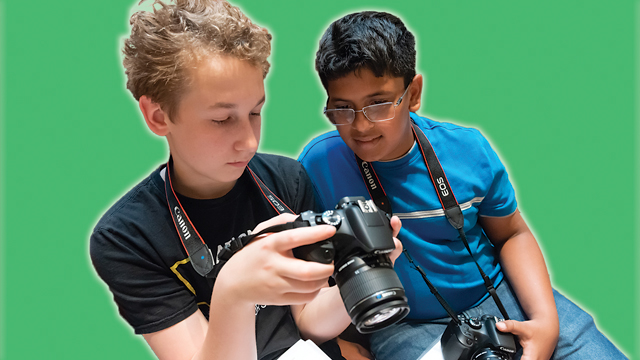
Teachers focus on each child’s learning styles and development, and they work with students of all ages, giving each individual attention. Camps range from drawing and painting to textiles and fashion.
VMFA summer camps offer students the chance to explore the museum’s world-renowned art collection. “They can see master artists and learn from seeing and appreciating the art,” Endy says. “They can go to the studios and be inspired and create their own works. The art history and content we provide students is like no other in Richmond. Every class will utilize our collection in one way or another.”
Student camps are located in different studios equipped with professional quality materials as well as basic materials students can use at home. Teens can choose from camps in the Pauley Center that put an emphasis on drawing, painting, sculpting, film or fashion.
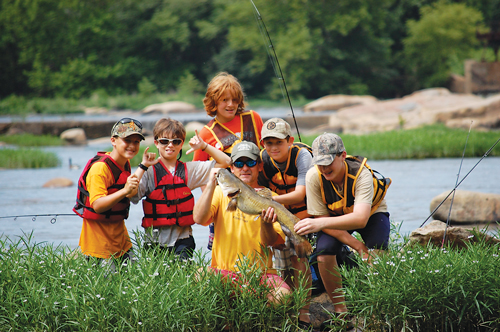
Cheron Smalls of Hanover County believes her oldest daughter Kayla, fourteen, would be a good candidate for one of VMFA’s camps. “I have my eye on some of those camps,” she says. “Kayla is interested in fashion and they have camps for that.” Smalls began sending Kayla and her 11-year-old brother Christian to camps when they were in elementary school. Smalls’ youngest daughter, 4-year-old Quinn, has not started going to camps yet.
“We’ve been doing this for nine years in different capacities,” Smalls says. “The driving force behind it was that I needed childcare because I work full-time. I also wanted them to have activities and stimulation. I don’t want them to be sedentary. I want them to be outside and experience new things when they are not in school.”
Kayla and Christian have participated in a variety of camps and loved the experience, their mom says. “They have also done camps that Hanover County offers. They are close to home and extremely affordable.” The first Hanover County Parks and Recreation camp the kids participated in after moving to Ashland was impactful. “For them it was a great social experience,” Smalls says. “They got to meet kids they would be in school with in the fall.” Early on, the Smalls’ children participated in just one camp a summer, but now she plans out their weeks. “They may do a few weeks with one of the county camps and then a couple of weeks of a specialty camp that lines up with their interests,” she says.
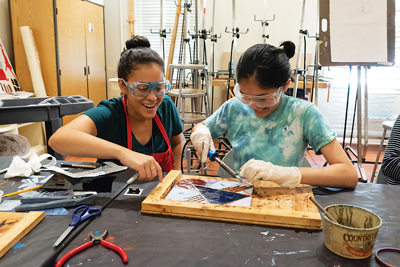
Like Shane, Smalls tries to find camps that would interest each of her children. “For Christian, I’m thinking a LEGO or Minecraft camp,” she says. “He also likes sports, so it’s easy if the camp has sports.”
Kayla has participated in Girl Scout camp. “They did certain things that if I had asked my daughter to do them she would have said no,” Smalls says of the evening camp. “They did outside night activities. The camp showed her that she could do some things she didn’t think she could do.”
She believes Kayla has become more open-minded and willing to try different things since she’s been going to camps. “She comes home and says how much fun it was,” Smalls says. “Last year, one camp had an archery day and she was skeptical, but she really enjoyed it. The camps get them to try things they don’t try on their own.”
Smalls knows when her son has enjoyed camp. “He’s talking about it when I pick him up,” she says. “That’s my indication that our money was well spent.” And that’s something every parent likes to hear!
Portions of this article updated April 2022


